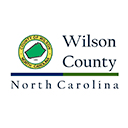Online Animal Waste Operator Continuing Education Credits
go.ncsu.edu/readext?746906
en Español / em Português
El inglés es el idioma de control de esta página. En la medida en que haya algún conflicto entre la traducción al inglés y la traducción, el inglés prevalece.
Al hacer clic en el enlace de traducción se activa un servicio de traducción gratuito para convertir la página al español. Al igual que con cualquier traducción por Internet, la conversión no es sensible al contexto y puede que no traduzca el texto en su significado original. NC State Extension no garantiza la exactitud del texto traducido. Por favor, tenga en cuenta que algunas aplicaciones y/o servicios pueden no funcionar como se espera cuando se traducen.
Português
Inglês é o idioma de controle desta página. Na medida que haja algum conflito entre o texto original em Inglês e a tradução, o Inglês prevalece.
Ao clicar no link de tradução, um serviço gratuito de tradução será ativado para converter a página para o Português. Como em qualquer tradução pela internet, a conversão não é sensivel ao contexto e pode não ocorrer a tradução para o significado orginal. O serviço de Extensão da Carolina do Norte (NC State Extension) não garante a exatidão do texto traduzido. Por favor, observe que algumas funções ou serviços podem não funcionar como esperado após a tradução.
English
English is the controlling language of this page. To the extent there is any conflict between the English text and the translation, English controls.
Clicking on the translation link activates a free translation service to convert the page to Spanish. As with any Internet translation, the conversion is not context-sensitive and may not translate the text to its original meaning. NC State Extension does not guarantee the accuracy of the translated text. Please note that some applications and/or services may not function as expected when translated.
Collapse ▲Because of continued restrictions on in-person meetings, Cooperative Extension has organized several opportunities for Animal Waste Operators to receive continuing education credits for 2020. Each session is worth 3 continuing education credits and attendees must register through the links below. A link for the video call as well as a reminder will be emailed to you several days before the event. If you have any questions or need assistance, feel free to call the N.C. Cooperative Extension of Wilson County office at 252.237.0111.
November 10, 5–8 p.m.: https://november10cec.eventbrite.com
- Best Management Practices for Sampling Manures (30min) – Mahmoud Sharara, NC State University
- Weather- Hurricanes, Tornadoes, Flooding – (1 hour) – National Weather Service
- Hay Production- (30min)Dennis Hancock, formerly UGA
- Proper Tissue Sampling- (30min) – Steph Kulesza, NC State University
- Nutrient Mangement Planning and Cropping Systems – (30min) – Steph Kulesza, NC State University
December 3, 9 a.m.-12 p.m.: https://december3cec.eventbrite.com
- Sludge Management and Utilization Opportunities – (1 hour) Mahmoud Sharara, NC State University
- NC Pork Council – Legislative Updates (1 hour) – Angie Maier, NCPC
- What to expect on a DEQ inspection (30min) – Megan Stilley, Washington Regional Office
- African Swine Fever update (30min) – Jon Holt, NC State University
December 16, 1-4 p.m.: https://december16cec.eventbrite.com
- Using Animal Waste in Forestry – (30min) – Colby Lambert, NC State Extension
- Bermudagrass Fertilization and Issues – (1 hour) – Georgia Love, N.C. Department of Agriculture and Consumer Services – Regional Agronomist
- Crop Production- (30min) – NC State University Crop Science Department
- Research on Identifying DNA of Waste Products – (1 hour) – NC Pork Council cooperation




